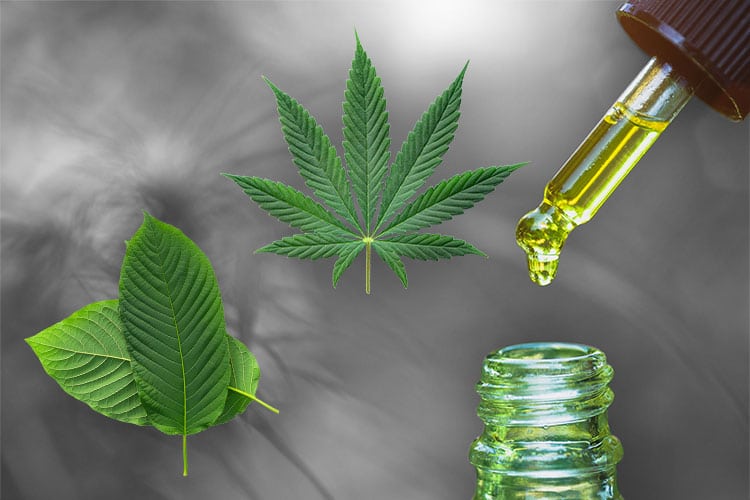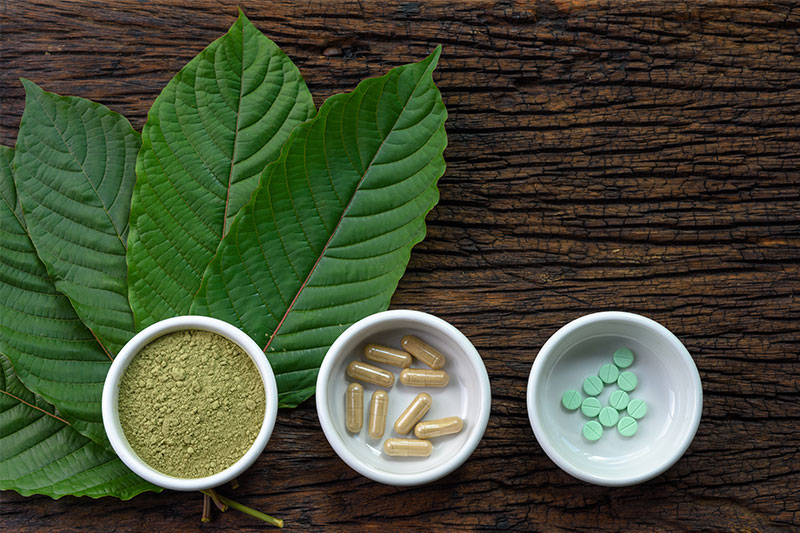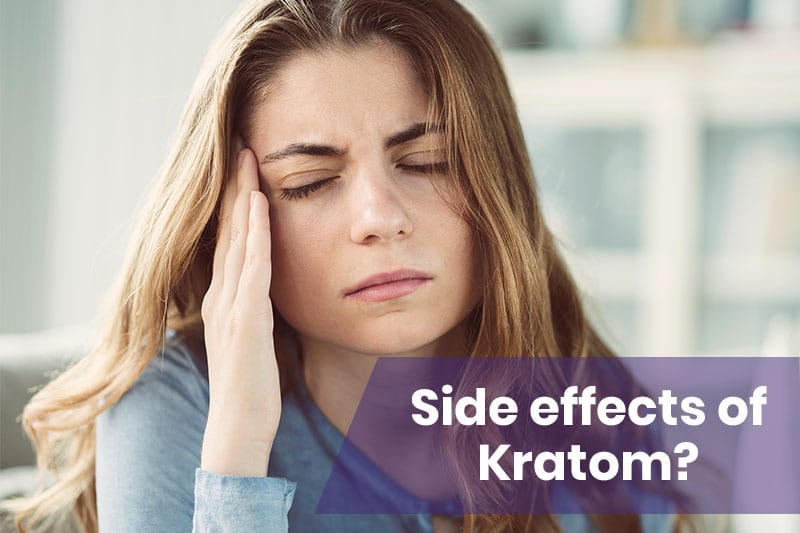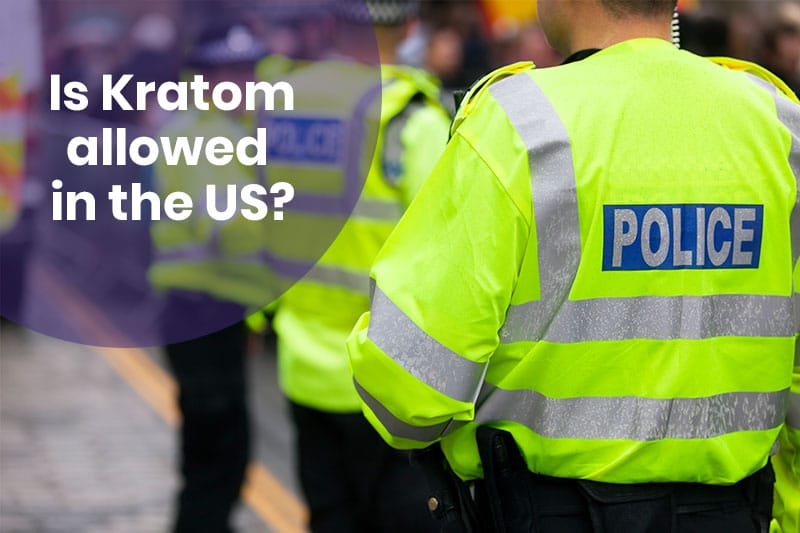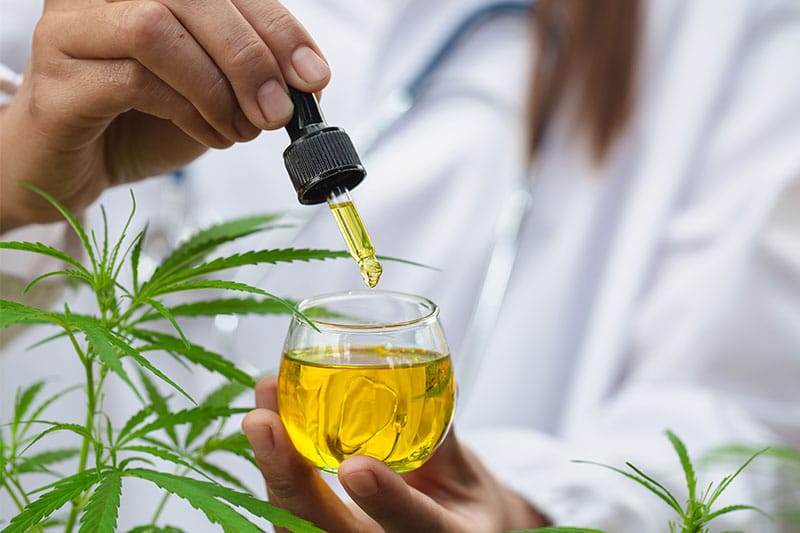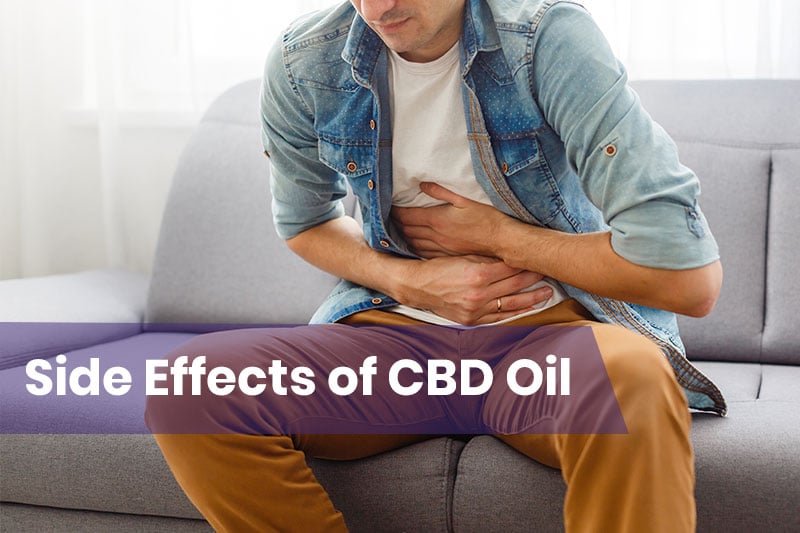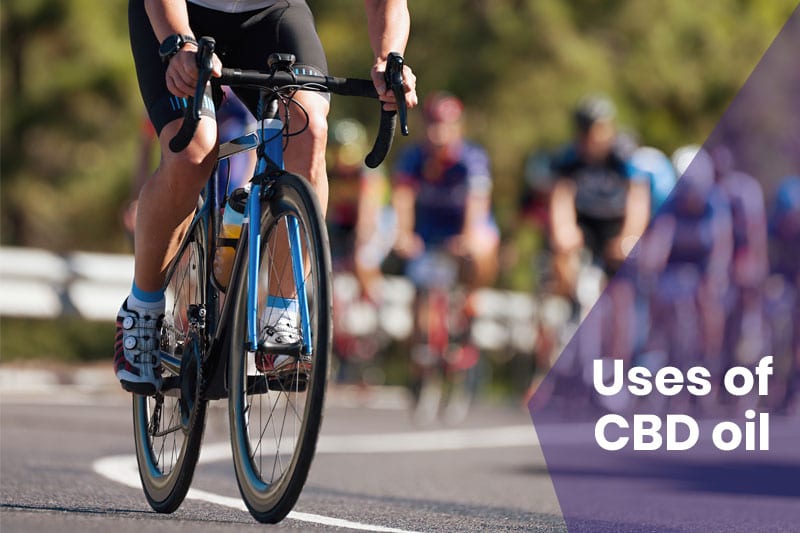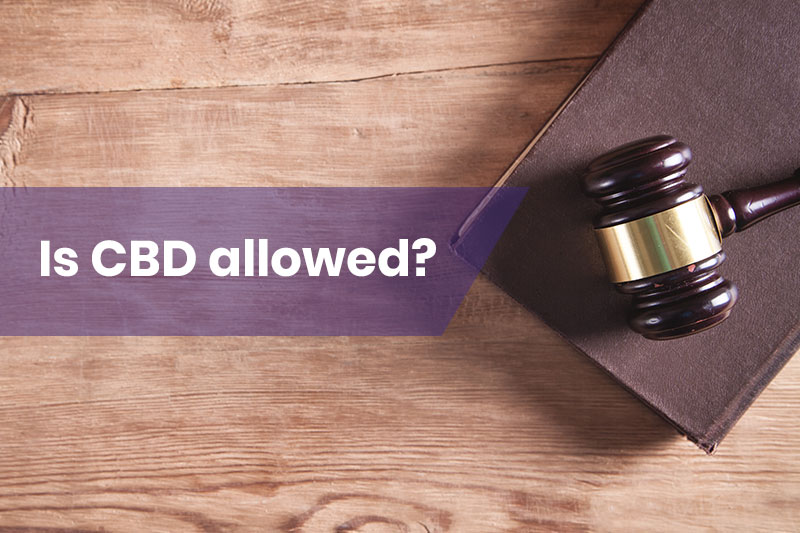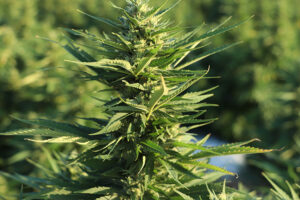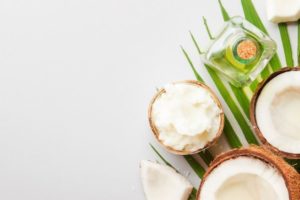The sky-rocketing growth of the cannabidiol (CBD) industry has encouraged the acceptance of other similar herbs and substances, such as Kratom.
Kratom is a natural plant with effects similar to cannabis. It is quite an intriguing substance, so we can’t stop but wonder and ask ourselves:
Is Kratom beneficial to our health?
Are there any side effects?
Is there any possibility of kratom addiction?
Let’s take a look at the unique features of Kratom and the old battle of Kratom vs. CBD oil, and decide which substance is better.
What is Kratom?
Kratom, also known as Mitragyna speciosa, is a tropical tree from Southeast Asia. For years, Kratom has been used by the local farmers as an energy booster. Its leaves can be smoked, crushed, or consumed in pill form. Some people brew it into hot drinks while others eat the whole leaves.
The compounds within the kratom plant are fascinating as they are similar to but also different from any other substances, including CBD. Kratom leaves contain 7-hydroxy mitragynine and mitragynine.
These active ingredients interact with the body’s receptors in a way similar to morphine and other opioids. When consumed at minimal doses, the leaves act as stimulants, causing the consumer to feel relaxed and full of energy. At higher doses, Kratom brings a feeling of excitement and joy and can reduce pain.
There are two kratom varieties—Red Vein Kratom and Maeng Da or White Vein Kratom. Red Vein Kratom is known for its sedative features, giving you a high feeling and a very sleepy mood. Maeng Da is the opposite—it has stimulant qualities that help you focus. White Vein Kratom is also known as an energy booster.
In the Southeast Asian region, Kratom is used like cannabis but has never enjoyed its deserved attention. However, in the past couple of years, its usage has increased, specifically in Europe and the US.
The Effects of Consuming Kratom
According to the American Addiction Centers, Kratom takes effect 10 – 15 minutes after consuming it and remains active for 2 to 5 hours. In low doses, Kratom works as a stimulant drug, increasing energy and sociability. At higher doses, it may have similar effects to opioids such as morphine, which causes sedation, relaxation, reduced anxiety, lowered pain sensations, and pinpoint pupils.
The New York State Office of Alcoholism and Substance Abuse Services (NY OASIS) examined the interaction of the kratom plant and opiate receptors with how morphine and other opioids interact with the brain. Morphine and other opioids create a flood of neurotransmitters in the brain that help regulate the state of mind and control decision-making.
Once the level of neurotransmitters increases, it elevates the mood and makes the person feel good. However, the Drug Enforcement Agency (DEA) has reported specific effects of kratom abuse, such as psychosis, confusion, and hallucinations.
Are There Any Safety Concerns?
When taken by mouth, Kratom may cause dry mouth, nausea, vomiting, constipation, delusions, aggression, and thyroid problems.
Those who use Kratom frequently and then stop taking it may experience muscle pain, decreased appetite, muscle spasms, diarrhea, anxiety, and negative mood changes. However, thorough documentation of Kratom’s downsides is rare.
There is not enough information regarding the safety of consuming Kratom for pregnant women. Experts recommend staying on the safe side and avoiding consumption when you are pregnant or breastfeeding. The same goes for alcohol. People with an alcohol addiction who use Kratom may experience effects and conditions like seizures, psychosis, and liver damage.
Studies have reported that Kratom is safest to use by itself, without other substances or alcohol. Overdosing on Kratom would require a very high dose. The drug has addictive potential, and therefore, has attracted criticism. The biggest concern doesn’t come from the features of Kratom but other substances mixed with it.
Is Kratom Legal in The US?
Kratom is illegal in the US, and some states (16 of them) have banned it. Although many people swear by its health benefits to improve certain conditions, Kratom has opioid features—and it is not as safe as one might think.
Still, Kratom is very popular in Asian countries and mixed into foods and beverages. Thai militants combine Kratom with concoctions, making them feel brave and fearless. In the US, people turn to this substance for its benefits (relieves pain, boosts energy, and improves mood).
The current status of Kratom varies from state to state. It is not scheduled under the DEA, although in 2016, they proposed classifying this substance as a Schedule I drug (materials that have high abuse potential, not accepted for medical use). Public demonstrations by people who use Kratom to relieve pain and anxiety resulted in the withdrawal of the proposal. Some states sell it as a “legal psychoactive drug.”
Since Kratom’s status is still undefined in many areas of the US, people purchase it online. The leaves originate from the Indonesian region, where the substance is not controlled.
What is CBD Oil?
CBD oil or cannabidiol is a product derived directly from the cannabis plant. It acts on the brain receptors in the endocannabinoid system and enhances their effectiveness. Unlike other cannabinoids like THC, it can’t get the user high. You can consume it differently—through CBD oil directly or foods such as gummies, cookies, and drinks.
CBD affects consumers differently. At a lower dose, you may not feel anything. However, you may feel relieved and stress-free at a higher dose. It is gaining popularity in the health and wellness industry, with some analysis confirming it may ease chronic pain conditions, lower stress, and boost mood.
When first using CBD, it is essential to start with micro-dosing. Take small doses routinely, until the body adapts to the product. To date, there are no studies proving that one can overdose on CBD oil. Since there is no specific dose, it is best to consult with your doctor or pharmacist before using CBD oil. The dosage may vary depending upon weight, symptoms, and tolerance levels.
What Are the Side Effects of Consuming CBD Oil?
According to the World Health Organization, there are little or no side effects of consuming CBD oil. Through the years, some rare side effects have been reported, such as fatigue, headaches, drowsiness, and diarrhea. For most consumers, these side effects happened during the first days while increasing the dosage.
Lowering the dose is an effective way of avoiding any undesirable conditions. If you are currently experiencing dizziness or fatigue, reduce your dosage, or try a different type of CBD oil. There are no official reports of side effects from this cannabidiol.
Potential Uses of CBD Oil
Here are a few health benefits of CBD oil that are supported by scientific proof.
Relieves Anxiety
CBD oil helps to manage stress and anxiety. Medical experts think this cannabidiol can change the way your receptors react to serotonin. Brain receptors are small proteins that receive messages and respond to numerous stimuli.
According to one research report, CBD helped people with anxiety talk in front of an audience. Other studies have shown that CBD helps relieve stress and anxiety by improving symptoms of PTSD (post-traumatic stress disorder) and inducing sleep (in the case of insomnia).
Pain Relief
The effects of CBD oil on your receptors may help relieve pain. Scientific studies have shown that cannabis can offer certain benefits to people after chemotherapy. According to the National Institutes of Health, CBD oil relieves pain caused by MS, muscle pain, arthritis, and spinal cord injuries.
Prevents Cancer Cell Growth
Some studies have investigated the role of CBD in treating cancer. Although the research is in its early stages, the NCI revealed that CBD helped prevent cancer cell growth and alleviate the side effects of cancer treatment. Cannabidiol can change the way cells reproduce.
Helps with Neurodegenerative Disorders
Medical experts are examining the brain receptors to learn about the effect CBD oil has on patients with neurodegenerative disorders. They are analyzing the use of CBD for treating multiple sclerosis, Alzheimer’s, stroke, and Parkinson’s disease.
CBD oil may reduce inflammation that makes some of these disorders worse. However, more research is required to understand the CBD effects of neurodegenerative conditions.
Is CBD Oil Legal?
In the US, CBD oil is legal, but not in all states. South Dakota, Nebraska, and Idaho are working on legislation that would allow the sale of CBD oil. While consumers can access CBD oil in online stores, some CBD brands face legal action and consequences.
What Is the Difference Between Kratom and CBD Oil?
Now that you know more about Kratom and the uses of CBD oil, let’s discuss the differences between these popular herbs.
Consumption Methods
You can consume Kratom by smoking, chewing, or brewing its leaves in hot drinks. Most people prefer consuming Kratom in extract form, but it also is consumed in capsule form.
CBD is available in various forms—oil, edibles, vapes, gummies, extracts, and many other styles. Regular consumers prefer taking CBD oil (a few drops a day under the tongue).
Legality
Kratom is not legal in most countries. The legality of Kratom in the US remains undefined because its status varies from state to state. Thailand, Myanmar, Australia, and other countries consider Kratom illegal. You can get Kratom in Germany, Canada, and New Zealand, but only in limited quantities.
Although CBD comes from a hemp plant and marijuana, some countries understand the health benefits of cannabidiol and allow you to purchase CBD oil in pharmacies.
Health Qualities
Both CBD and Kratom are beneficial in treating specific health conditions. Both treat depression, chronic pain, relieve stress and anxiety, and offer better sleep. Kratom treats mood disorders, opioid withdrawal, and fatigue. Some people claim it is useful in breaking an addiction to stronger (more harmful) opioids like oxycodone and heroin. More clinical trials are needed before we recognize Kratom as a reliable treatment method.
CBD is good for arthritis, epilepsy, and inflammation. It has a long list of uses and applications, mostly popular in the fitness community. Apart from helping with pain management and recovery, researchers are studying CBD oil for its ability to treat heart disease, cancer, Parkinson’s disease, diabetes, epilepsy, and many others.
Side Effects
Although CBD and Kratom are beneficial herbs, there are specific unfavorable effects of consuming them regularly or at very high doses. With Kratom, you might experience mouth dryness, vomiting, and dizziness. CBD has few side effects. It may change your mood and cause nausea and diarrhea (effects that aren’t scientifically proven).
When it comes to deciding between Kratom and CBD based on side effects, it is safe to say that CBD is the better option.
Final Words
In a nutshell, both Kratom and CBD have health benefits. When taken at the prescribed dosage, both of these substances are safe to consume. Even though they are unique, Kratom, and CBD oil have different effects on sleep, anxiety, and pain. Between the two, CBD is a more acceptable option.
The reason behind this is simple. More people are familiar with CBD oil, and it is safer to buy. Plus, there is scientific evidence of its health effects. Kratom is a relatively new herb, not as thoroughly investigated. What it has to offer in terms of health benefits remains to be seen.
While it may treat some conditions and relieve pain, its global use is restricted. Users of Kratom must be aware of the potential side effects, and websites selling it need to be more transparent on its ingredients.
The key is continuing to educate yourself on cannabidiol substances. The best way to know if they are right for you is to look at their benefits, uses, and side effects beforehand.
FAQs About What is Kratom and Its Difference From CBD Oil
Question: What is the difference between Kratom and CBD oil?
Answer: Kratom and CBD oil comes from a different plant. Kratom treats mood disorders, opioid withdrawal, and fatigue. On the other hand, CBD oil is commonly used for treating pain, inflammation, stress, and anxiety.
Question: What is Kratom?
Answer: Kratom, also known as Mitragyna speciosa, is a tropical tree from Southeast Asia. In low doses, Kratom works as a stimulant drug, increasing energy and sociability. At higher doses, it may have similar effects to opioids such as morphine, which causes sedation, relaxation, reduced anxiety, lowered pain sensations, and pinpoint pupils.
Question: Are there side effects in using Kratom?
Answer: When taken by mouth, Kratom may cause dry mouth, nausea, vomiting, constipation, delusions, aggression, and thyroid problems.
Question: Is Kratom legal in the US?
Answer: Kratom is illegal in the US, and some states (16 of them) have banned it. Although many people swear by its health benefits to improve certain conditions, Kratom has opioid features—and it is not as safe as one might think.
Question: What is CBD oil?
Answer: CBD oil or cannabidiol is a product derived directly from the cannabis plant. It acts on the brain receptors in the endocannabinoid system and enhances their effectiveness. Unlike other cannabinoids like THC, it can’t get the user high.
Question: What are the side effects of consuming CBD oil?
Answer: According to the World Health Organization, there are little or no side effects of consuming CBD oil. Through the years, some rare side effects have been reported, such as fatigue, headaches, drowsiness, and diarrhea.
Question: What is the difference between Kratom and CBD oil?
Answer: There are some differences between Kratom like consumption method, legality, side effects, and uses.
Question: What are the side effects of CBD and Kratom?
Answer: Although CBD and Kratom are beneficial herbs, there are specific unfavorable effects of consuming them regularly or at very high doses. With Kratom, you might experience mouth dryness, vomiting, and dizziness. CBD has few side effects. It may change your mood and cause nausea and diarrhea.
Feel free to steal this image for your own site. All we ask is for proper attribution.
